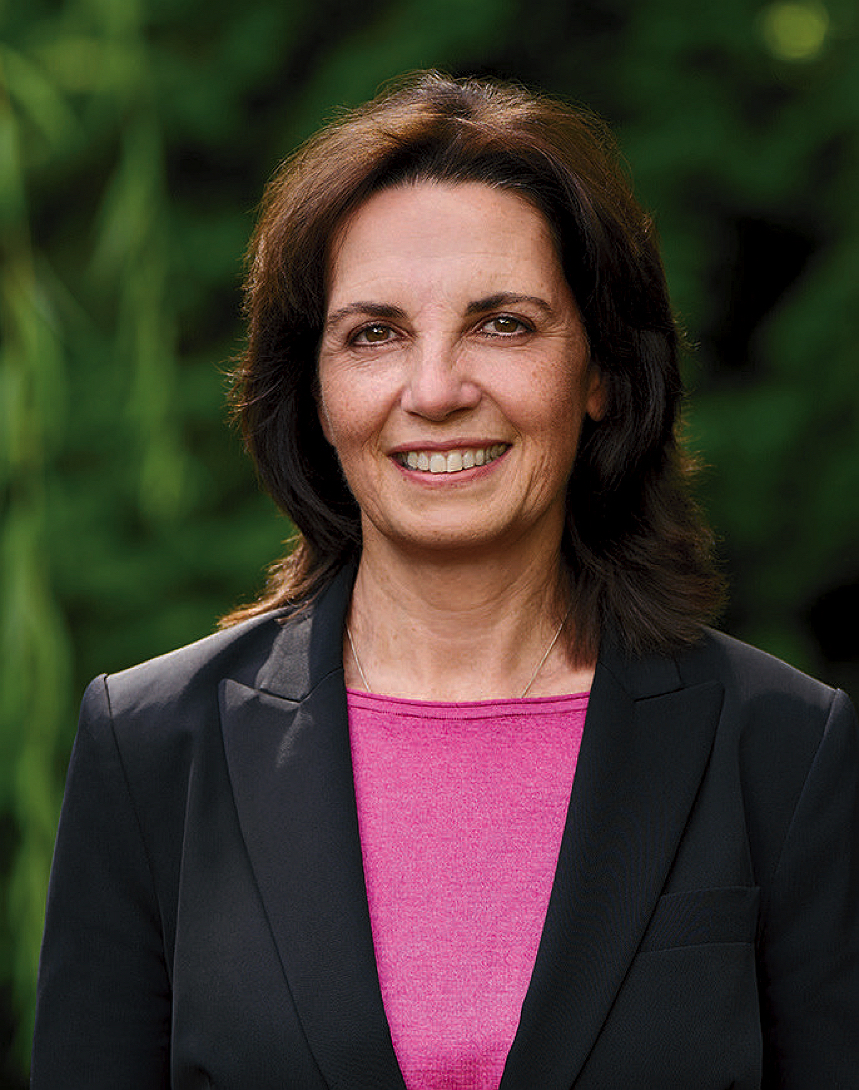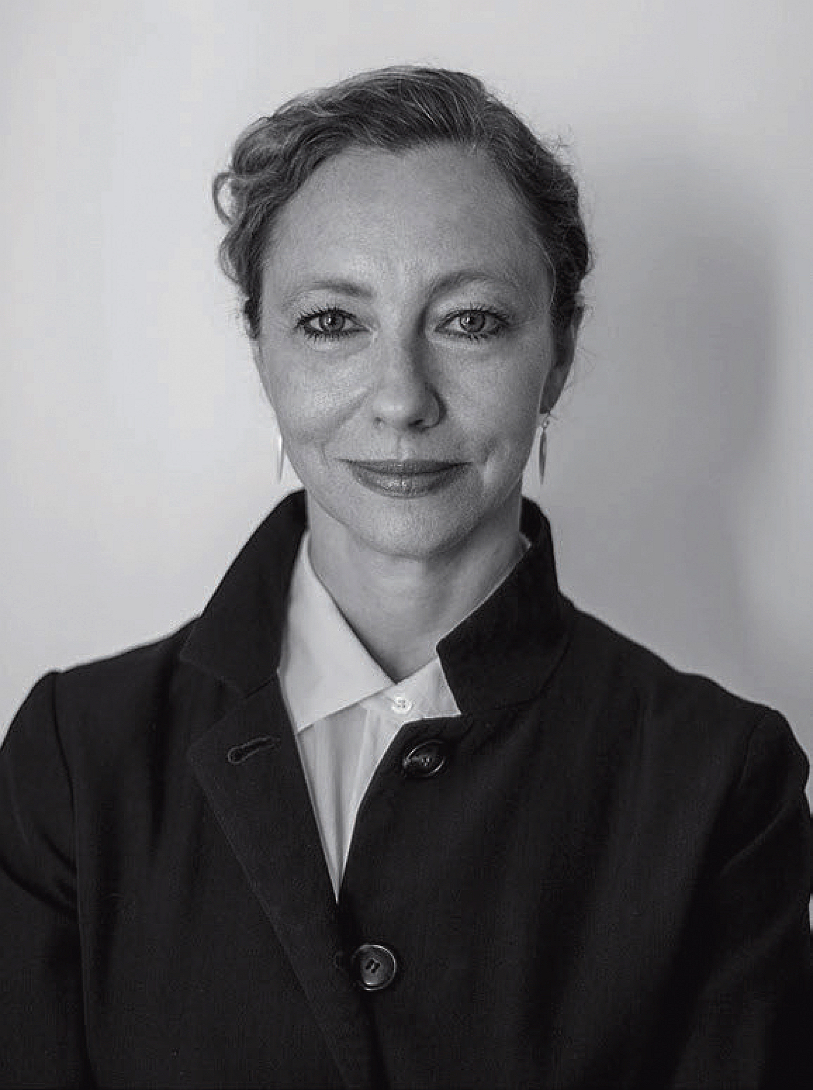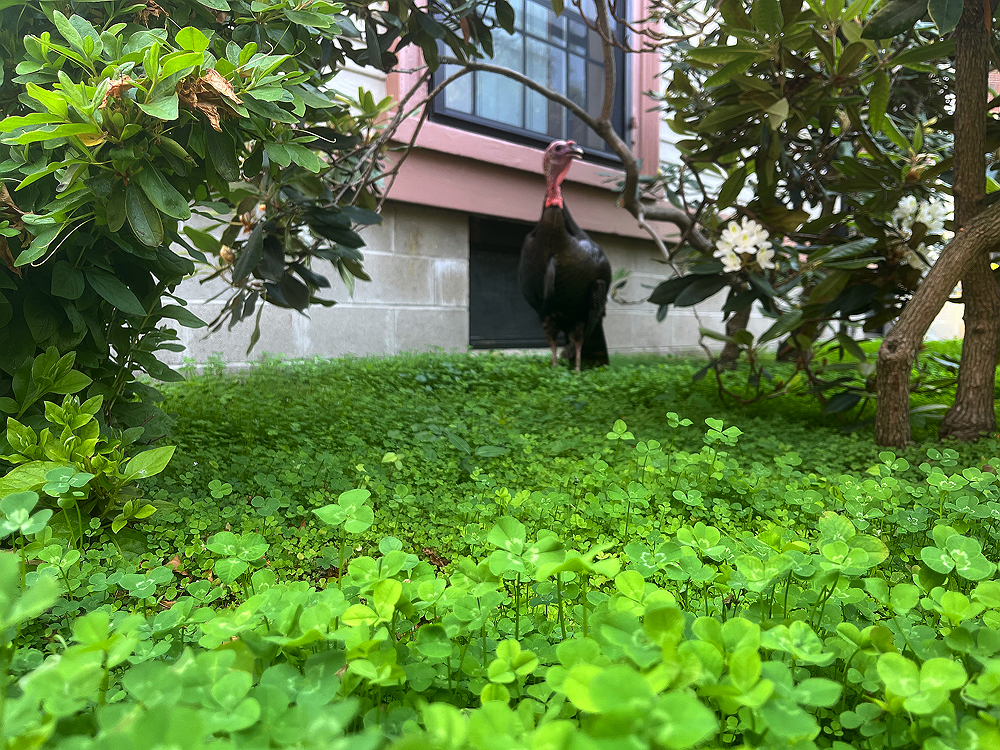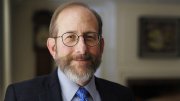President Alan M. Garber
After a dozen years as provost, and seven months as interim president (he was appointed January 2), Alan M. Garber became Harvard’s thirty-first president on August 2, when the governing boards announced their decision. The appointment itself comes as little surprise: Garber came to the interim presidency with broad University experience, and has helped calm a troubled campus while launching task forces to combat discrimination, foster free speech and civil discourse, and define how Harvard will (and will not) raise its institutional voice. But the details are newsy: Garber will serve as president through June 30, 2027—nearly three more academic years; and the Corporation will organize a search for his successor in the late spring or summer of 2026. Senior fellow Penny Pritzker praised him for doing “an outstanding job leading Harvard through extraordinary challenges,” and Garber expressed “a simple message of gratitude for the opportunity to lead Harvard” for the next three years, focusing on the academic mission and its benefit to society. Read a full report, with their statements, at harvardmag.com/president-garber-24.
More Protest Fallout
Following spring pro-Palestinian protests nationwide, and continuing investigations of and hearings on campus antisemitism and other forms of discrimination, six U.S. House committees declared their intent to probe 10 institutions (including Harvard), and to explore limiting their federal financial-aid and research funding. As part of this initiative, the House Ways and Means Committee voted along party lines to impose potentially severe fines on institutions found to have failed to protect students from antisemitic or Islamophobic discrimination, and, separately, to subject more private schools with substantial endowments to an excise tax by excluding international and DACA students from their reports on endowment assets per capita.…The House Committee on Education and the Workforce, which grilled President Claudine Gay last December 5 (along with the MIT and University of Pennsylvania leaders), advanced a Civil Rights Protection Act, which would require universities to detail how they investigate complaints under Title VI of the Civil Rights Act of 1964. That title protects students from discrimination based on shared ancestry and thus underlies investigations into antisemitism.…After pro-Palestinian protestors occupied the Stanford president’s office on June 5, injuring a law enforcement officer and damaging buildings, 13 were arrested; the students among them were suspended.…Penn issued temporary protest guidelines, for the first time explicitly banning encampments and overnight demonstrations in any campus location; a longer-term revision of the school’s “open expression” guidelines is underway.…And in early July, Columbia removed three deans from their posts for sending texts during a May forum on Jewish issues that the University characterized as echoing “ancient antisemitic tropes.”
Class Characteristics
The College announced in June that 84 percent of those offered admission to the class of 2028 accepted—a slight increase from the prior year, despite the campus turmoil during the past nine months. The entering class is 53.2 percent women and 46.8 percent men. About 55 percent of the new students will receive need-based aid. The average parent contribution for students receiving aid is $15,550, but 23.4 percent of the admitted class will attend with no parent contribution. Nearly half the first-years plan to concentrate in sciences, computer science, and engineering, versus just 12 percent indicating interest in the arts and humanities. No data have been released on the ethnic profile of the matriculants—the first class since the U.S. Supreme Court in June 2023 outlawed consideration of race in admissions.

New General Counsel
Jennifer O’Connor ’87 has been appointed vice president and general counsel as of July 29. A Cambridge native who most recently served as Northrop Grumman’s vice president of technology and information law and policy, she previously was general counsel of the Department of Defense and served on the White House staff during the Obama administration. From 2002 to 2013, she was an associate and then partner at WilmerHale, where William F. Lee ’72 (a Corporation member from 2010 and then Senior Fellow, and the lead litigator in Harvard’s ultimately unsuccessful defense of affirmative action before the Supreme Court) was co-managing partner. O’Connor earned an M.P.A. from Columbia in 1993 and her J.D. from Georgetown in 1997. She succeeds Diane Lopez, who retired in February, and interim general counsel Eileen Finan—and assumes her new role as Harvard faces litigation, federal investigations, and possible legislation emanating from the campus protests and allegations of discrimination during the past academic year.
Faculty Service Statements
As briefly reported in the July-August issue (“Locked In,” page 17), the Faculty of Arts and Sciences (FAS) has changed its guidelines for faculty appointments, ending the requirement for a Diversity, Inclusion, and Belonging (DIB) statement and replacing it with a “broad statement of service.” The guidance, disseminated June 3 by Nina Zipser, dean for faculty affairs and planning, reflected “feedback from numerous faculty members who were concerned that the current DIB statements were too narrow…and relied on terms that, for many, especially international candidates, were difficult to interpret.” (Diversity and equity statements, offices, and programs are under broad attack nationwide, and have also come in for criticism among many professors, including Harvard faculty members.) Candidates’ service statements are expected to describe “your efforts to strengthen academic communities” such as a department, institution, or professional societies. Related teaching and advising statements are expected to describe “your philosophy and practices as well as your approach to creating a learning environment in which students are encouraged to ask questions and share their ideas.” DIB statements were first required in FAS searches during the 2019-2020 academic year.
Rethinking Governance
Amid faculty members’ uneasiness about University governance, two attempts to effect change have advanced. The leaders of the effort to create a planning committee for a Harvard-wide faculty senate report (see harvardmag.com/senate-debate-24) that the FAS, Graduate School of Design, and Divinity School have all voted in favor of the effort. The Graduate School of Education, School of Public Health, and Kennedy School faculties appear ready to debate and vote on the proposal when they reconvene this fall. And the business, law, and medicine faculties are in the talking and considering stage.…Separately, a number of professors have voted to form a Harvard chapter of the American Association of University Professors, the national organization, affiliated with the American Federation of Teachers, AFL-CIO, which has since 1915 advocated for academic freedom, shared governance, and employees’ economic interests.

Atop the Art Museums
Sarah Ganz Blythe became Cabot director of the Harvard Art Museums, effective August 12, succeeding Martha Tedeschi, who retired in June. Ganz Blythe has most recently been deputy director, exhibitions, education, and programs at the Rhode Island School of Design Museum. During her undergraduate studies at Wellesley College, where she earned her B.A. in art history, she was a conservation intern at the Harvard museums. She earned her doctorate in modern art from the Institute of Fine Arts at New York University. Learn more at harvardmag.com/director-blythe-24.
Arts and Environment Gifts
In a year largely devoid of major gift announcements, two were unveiled in late spring. Joseph Y. Bae ’94, who became a fellow of the Harvard Corporation on July 1, and Janice Y.K. Lee’ 94 made their most recent significant gift: $20 million to endow FAS’s arts and humanities deanship and in support of undergraduate financial aid. According to the Harvard Gazette, their class’s thirtieth reunion gift totaled at least $140 million. And Dan A. Emmett, J.D. ’64, made a $15-million gift to establish the Emmett Environmental Law Center at the Law School. It will, in part, underwrite the country’s first environmental moot court institute, in which attorneys develop their litigation skills.
Upping the Medical Aid Ante
Michael R. Bloomberg, M.B.A. ’66, LL.D. ’14—who endowed undergraduate financial aid at Johns Hopkins, his alma mater, with a $1.8-billion gift in 2018—has given a further $1 billion. This gift makes a Hopkins medical education tuition-free for students from families with incomes below $300,000, and also pays living expenses and fees for those with family incomes below $175,000. It also augments aid for nursing and public-health students, and across the university’s other professional and graduate programs. NYU’s medical school and Albert Einstein College of Medicine are now tuition-free, but Hopkins is the nearest peer of Harvard Medical School able to offer prospective students this level of financial aid—suggesting an urgent priority for HMS’s fundraisers.
Plummeting Polls
In the wake of rising tuitions, inflation, controversies over affirmative action and diversity programs, and criticism of campus protests, the latest Gallup-Lumina Foundation poll on attitudes toward higher education paints a darkening picture. The survey, released in July, shows that just 36 percent of adults have a great deal or a lot of confidence in higher education: significant erosion from 57 percent reporting positive responses in 2015. Analysts focused on the underlying loss of confidence in higher ed, with fewer respondents professing some confidence, and 32 percent (nearly as many as those who are favorably disposed) reporting little or no confidence. Respondents were more positive about two-year institutions than four-year ones, perhaps reflecting concerns about cost and the relevance of the education on offer to employment prospects.
Honor Roll
Kavli professor of astrophysics David Charbonneau and Sara Seager, Ph.D. ’99, professor of physics and of planetary science at MIT, have been awarded the 2024 Kavli Prize in astrophysics for their work on extrasolar planets; the honor is accompanied by a $1-million honorarium.…Cogan University Professor Stephen Greenblatt has been awarded membership in the Order Pour le Mérite for Sciences and the Arts by the government of the Federal Republic of Germany.…Professor of physics Norman Ying Yao, whose research focuses on condensed matter and quantum information science, has been named a 2024 Ross Brown Investigator; the program, administered at Caltech, provides up to $2 million in research support over five years.…Emery professor of organic chemistry Eric N. Jacobsen has received the 2024 Welch Award in Chemistry for his research on small-molecule catalysts. The award comes with a $500,000 honorarium.…Five faculty members have been elected to the American Philosophical Society: Pierce professor of psychology Daniel T. Gilbert; Goldman professor of European studies and professor of sociology and of African and African American studies Michèle Lamont; Farber professor of medicine Willliam G. Kaelin; Mason professor of music and professor of American studies Carol J. Oja; and Smith professor of medicine and genetics Christine E. Seidman.

Crimson Goes Green
Buildings around Harvard Yard were greener this summer, as the campus and landscape design group shifted from layering on the mulch to sowing clover as a low-maintenance, low-water groundcover around dorms, Barker Center, the lower entrance to Lamont Library, and elsewhere. The benefits, according to assistant dean of campus design and planning Nazneen Cooper, include a better outcome for woody plants than suffocating their roots under shredded bark, and, unintentionally, an agreeable habitat for resident bunnies, turkeys, and more. Not quantified are carbon dioxide absorption and oxygen output, nor the welcome blast of color complementing the University’s iconic red brick.
Yard Rules
The Harvard Yard gates locked in late April (when a pro-Palestinian encampment was set up) were selectively opened in early June, after Alumni Day and reunions. But as new signs advised visitors, a certain wariness had set in. “Please take note that the following acts are prohibited on Harvard property,” the notices read, enumerating such no-nos as “erecting or maintaining a tent or other temporary structure,” “camping or sleeping outside,” blocking pedestrian paths or building entrances, “amplifying noise without appropriate prior approval,” postering or “affixing a message or image onto a Harvard building,” or “vandalizing property.” Just in case, “The Faculty of Arts and Sciences may grant exceptions to these prohibitions.”
On Other Campuses
The Boston Globe hailed the new quarters for MIT’s Schwarzman College of Computing as “the most exciting work of academic architecture in Greater Boston in a generation.” The donor, Stephen A. Schwarzman, M.B.A. ’72, CEO (and cofounder) of the Blackstone investment group, made a $350-million gift to the institute in 2018, part of its billion-dollar investment in computing and AI research and teaching.…Continuing the assault on legacy admissions, the Illinois legislature enacted a ban on legacy and donor preferences at state public higher education institutions, and California’s Assembly passed a similar measure affecting public and private schools; it requires a similar vote in the state Senate.…Joining many other selective institutions (including Harvard: see News in Brief, July-August, page 22), Stanford will again require applicants to submit standardized test scores, as of fall 2025.
Newsmakers
Timothy R. Barakett ’87, M.B.A. ’93, a Corporation member since 2019 and University treasurer since 2023, has been appointed chair of the Harvard Management Company board of directors, effective July 1. He succeeds Paul J. Finnegan ’75, M.B.A. ’82, the previous treasurer (the officer who customarily leads the HMC board). Finnegan will remain a director of the organization, which oversees investment of the endowment.…Brian K. Lee, vice president for alumni affairs and development since 2018, will retire at the end of 2024; see harvardmag.com/lee-departs-24.…Levin professor in literature Karen Thornber has been appointed Menschel faculty director of the Bok Center for Teaching and Learning, at a time of rising interest in artificial intelligence and other technologies bearing on pedagogy. A scholar of comparative literature and cultural history, she succeeds Robert Lue, who was appointed in 2013 and served until his death in late 2020.…Khalil Gibran Muhammad, Ford Foundation professor of history, race, and public policy at the Harvard Kennedy School, acclaimed for his scholarship on crime in America (see “Writing Crime into Race,” July-August 2018, page 57), has accepted a dual appointment in African American studies and public affairs at Princeton University at the end of the fall semester.…Tracy K. Smith, professor of English and of African and African American studies, and Dan Byers, Robinson Family director of the Carpenter Center for Visual Arts, resigned as co-chairs of the Harvard and the Legacy of Slavery Memorial Committee in late spring. In a letter, they explained that they were pursuing long, community-engaging processes, but felt under pressure from the University to proceed more quickly, conceive a final memorial project, and, in so doing, risk an insular, Harvard-centric result—“a gesture of institutional self-regard” rather than “forging genuine and durable relationships with descendant communities in Cambridge and Boston.” In June, the Crimson reported that Roeshana Moore-Evans, executive director of the overall legacy of slavery project, had resigned as well.
Headlines
Among the 15 faculty fellows appointed by the American Association of University Professors’ new Center for the Defense of Academic Freedom to examine threats to academic freedom and institutional autonomy is Naomi Oreskes, Lea professor of the history of science. Much of her recent research (see harvardmag.com/exxon-projections-23) has focused on misinformation and deceptive practices in policy debates.…The Bow & Arrow Press, displaced by Adams House’s renovation (see harvardmag.com/bow-evict-23), has found a new abode within Harvard Library’s printing and graphic arts department. The new venue, within Lamont Library, plans open studios and workshops to encourage use by undergraduates and others.…Animal-rights activist Brittany Drake, who approached the stage and threw glitter on then-interim president Alan Garber at Alumni Day (see harvardmag.com/alumni-day-24), has been charged with three felonies and three misdemeanors.









